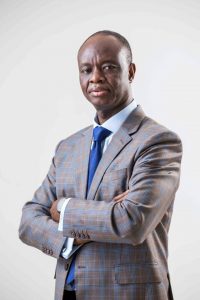Ghana’s early experience with mobile phones dates back to the early 1990s.
Within a spate of about two decades, we were touted as one of the countries with the widest mobile penetration not only in Africa but the world at large.
Following this, the smartphone was introduced by a Japanese firm and there has been no looking back. Smartphones became widespread in the late 2000s and today, there are over a billion users worldwide.
The reason why we embraced the mobile technology so heartily has been traced to the low landline penetration in our part of the world and the plethora of functions it plays. Smartphones are fulfilling most people's need for a telephone, digital camera and video camera, GPS navigation, a media player, clock, news, calculator, web browser, video game player, flashlight, compass, an address book, note-taking, digital messaging and even an event calendar.
The proliferation of the smartphone in our society has had a lot of advantages. The phone has not only aided communication for socialisation, thereby keeping us in touch with our family and friends, but it has made possible the transfer of information and pictures instantly. It seems to be even complementing the efforts of the walkie-talkie used by our security personnel, aiding in communication during their day-to-day operations to prevent and fight crime and to regulate traffic flow. The smartphone is able to transport us from wherever we are located into the world of another through shared videos and pictures.
Economically, it has allowed the transfer of money from one place to another to the extent that it saves time and money. These are only a few of the positives this technology has made possible.
But this same device has come with a lot of negatives too. The very desire to own one has landed many in jail after they had stolen it or attempted to do so. Those in jail have even been the lucky ones as those not so lucky have been lynched. The smartphone has been the source of instability and quarrels in relationships as snooping partners have found their partners cheating and partners seem to spend so much time on chats to the dissatisfaction of their partners. The device seems to have a way of easily getting and keeping attention to the extent that some become addicted and simply can’t put it down.
This is to the extent that people don’t seem to listen anymore because they intend to call to ask same things you are telling them once they leave your presence.
With it also has been the zeal to be the first to share stuff. Whether appropriate or not, there seems to be some uncontrollable urge to share messages received to make one feel “ in vogue” perhaps. There have been many occasions where people who have rushed to an accident scene have done so not to help the accident victims but to capture videos and pictures of the scene in order to be the first to share them, giving them some unexplained gratification.
Then comes the worrisome trend of the circulation of leaked sex videos which naturally has varied and wide consequences.
Scandals resulting from leaked sex tapes and other materials are becoming too many for comfort in a society where openly discussing sex seems a taboo. Recently, and in close succession, we are seeing in circulation videos recorded by those supposed to be victims of the scandals that have emerged from such acts -- they privately recorded the videos themselves but somehow, these videos end up circulating in the public domain.
Examples of such videos are many. A few of them which readily come to mind include the video dubbed: “Begoro Limping man,” and then came that of the Tamale Sex Scandal and “Rashida Black beauty” who recorded herself nude. Among the recent ones is that involving the headteacher and Senior High School (SHS) student and the case of a pastor’s wife who reportedly mistakenly sent explicit videos to her church members instead of her husband.
I am wondering what it is that seems to be making some Ghanaians so eager to record what they do in private. Is it worth the trouble to record that which is likely to fall into the wrong hand and circulate in public space?
The mobile device is likely to keep transforming the way we do things because of the many advantages it presents and, therefore, it is not even possible to think about life without it. It is the abuse of the device that is the problem.
It seems the device is in the hands of many who don’t really understand completely all that it can do and can’t do.
We will, therefore, need to do some education on this to prevent the kind of unacceptable incidents we are witnessing. As individuals, we need to be circumspect about the kind of things we are so eager to share. After all, the smartphone was made for man and not man for the smartphone.
Source: Graphic.com.gh




